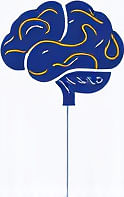Reward Systems for ADHD in Remote Work
 by Max Miller
by Max Miller
Discover how reward systems can support adults with ADHD in remote work environments. This article explores practical strategies to boost productivity and achieve better work-life balance, drawing from real experiences and expert advice.

Remote work offers flexibility, but for adults with ADHD, it can present unique challenges like distractions and difficulty maintaining focus. Reward systems provide a helpful way to build motivation and structure into daily routines.
One key aspect is understanding how reward systems work for individuals with ADHD. These systems involve setting up positive reinforcements that encourage task completion. For example, after finishing a work project, one might treat themselves to a favorite activity. This approach helps create a sense of accomplishment and reduces the overwhelm that can occur in unstructured settings.
In remote work, establishing a routine is essential. Start by breaking down the workday into smaller, manageable tasks. This makes it easier to track progress and apply rewards effectively. For instance, after completing an hour of focused work, take a short break to enjoy something enjoyable, like listening to music.
Practical hacks can make a big difference. Consider using apps that track habits and offer virtual badges upon completion. These tools turn mundane tasks into engaging challenges. Another idea is to pair work with sensory preferences, such as working in a quiet space with preferred lighting, which can enhance concentration for those with ADHD.
Building a Personalized Reward System
Creating a system that fits individual needs is important. Begin by identifying what motivates you—could it be a walk outside or a healthy snack? Once identified, link these rewards to specific goals. For example, finishing a report might earn a coffee break. This method not only boosts productivity but also supports overall well-being.
Accountability plays a role too. Share your reward plan with a colleague or friend who can check in periodically. This adds an extra layer of encouragement without adding pressure. Over time, this practice can lead to better work-life balance by making work feel less like a chore.
For adults with ADHD, managing energy levels is crucial in remote settings. Alternate between high-focus tasks and lighter ones to prevent burnout. Reward yourself after intense periods with rest or leisure activities. This strategy helps maintain steady productivity throughout the day.
Overcoming Common Obstacles
Distractions are a frequent issue in home environments. To counter this, designate a dedicated workspace free from interruptions. After maintaining focus for a set period, reward yourself with a quick stretch or a moment of relaxation. Such steps foster a positive association with work tasks.
Another obstacle is procrastination, often linked to ADHD. Combat this by setting small, immediate rewards for starting tasks. For example, beginning a meeting preparation might warrant a favorite drink. This technique shifts the focus from the end goal to initial action, making it easier to get started.
Incorporating mindfulness practices can complement reward systems. Simple breathing exercises before starting work can help center the mind. Follow these with a reward to reinforce the habit, promoting a calmer approach to daily responsibilities.
Integrating with Work-Life Balance
Achieving balance means setting boundaries between work and personal time. Use reward systems to signal the end of the workday, like enjoying a hobby after logging off. This helps prevent work from spilling into evenings, which is vital for mental health.
Family and social aspects matter too. Involve loved ones in your reward plans, such as planning a family game night as a weekly treat. This not only aids productivity but also strengthens relationships, contributing to a fulfilling life outside work.
Long-term, these strategies can lead to sustainable habits. Track your progress over weeks to see improvements in focus and satisfaction. Adjust rewards as needed to keep things fresh and effective.
In summary, reward systems offer valuable support for adults with ADHD in remote work. By applying these practical tips, individuals can enhance their productivity while maintaining a healthy balance. Remember, it's about finding what works best for you and building from there.
